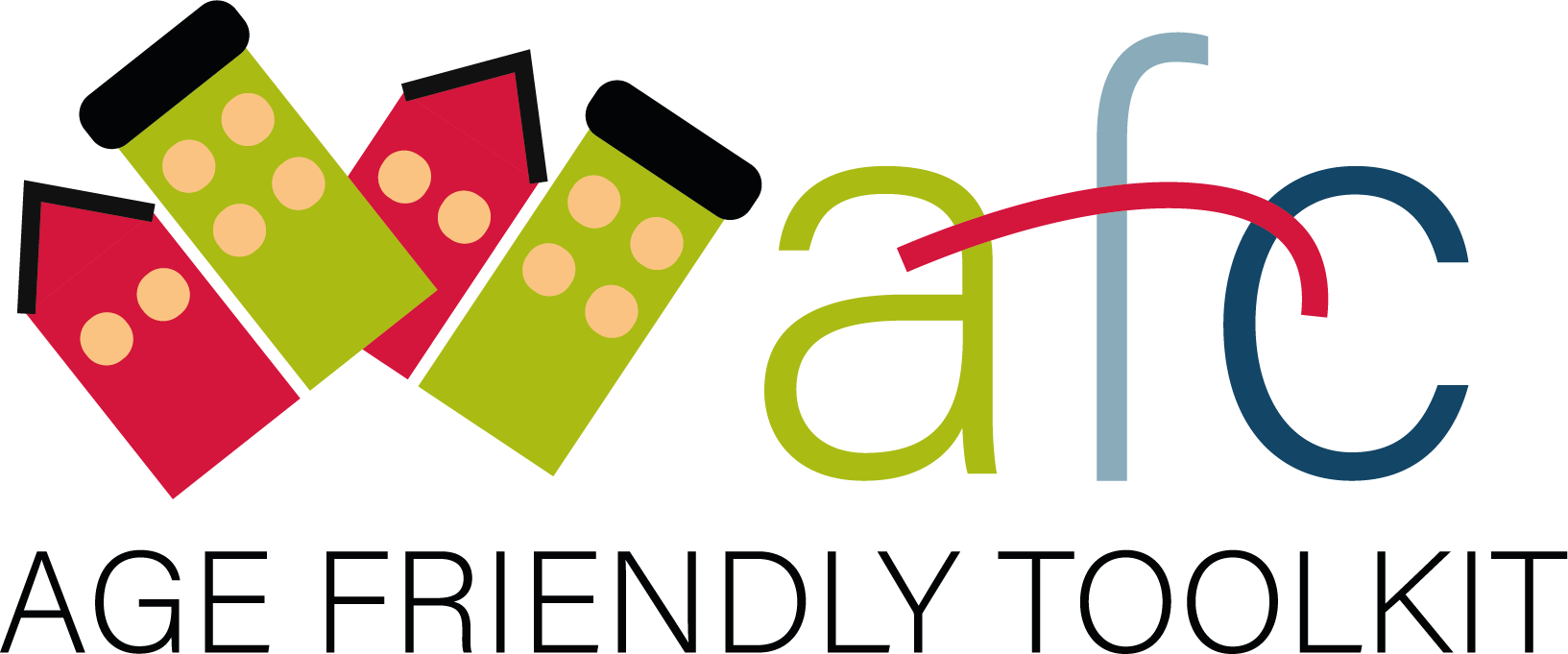WORKSHOPS WITH EXPERTS IN AGE FRIENDLY ENVIRONMENT
In September 2023, the AGE-FRIENDLY TOOLKIT partners hosted a series of thematic on-line workshops to discuss together with professional, the key competences of the training curriculum for professionals of age-friendly environments. The aim of the workshops was discussing about the skills, knowledge and attitudes for the professionals of age-friendly environments and bout a first proposal for specific training activities for the respective thematic areas.
The thematic areas taken in consideration was:
- social participation
- community support & communication
- built and smart environment
- social inclusion & cooperation
- civic participation & employment
The partners have collected the follow up of contents and results investigated during the workshop and drafting 2 documents: a Training Curriculum and an Informative Booklet, available in english, spanish, danish, italian and dutch language
The contents of these documents was validated through 5 workshop at national level, which took place in January 2024.
These documents will support the training contents development in the next phases.
If want to know more about Training Curriculum and Booklet, please check here https://www.afctoolkit.eu/downloads/
The training curriculum consists of five modules based on the domains of the age-friendly cities concept. After completing all the modules of this training curriculum, learners will understand and/or be able to:
- Promote and develop built and smart environments that support older adults in ageing in place.
- Promote and foster social participation to support the wellbeing and quality of life of older adults through promoting co-creation activities together with local authorities, social organisations, and other stakeholders.
- Promote and foster social inclusion of older adults in society recognising older adults as valuable members of society.
- Promote civic engagement and employment of older adults by activating a range of factors such as motivation, gender approach, accessibility, teamwork among others that facilitate the participation of older adults in decision-making and civic engagement at local level.
- Develop a clear communication strategy that fosters collaboration, cooperation, participation and engagement of older adults and other stakeholders in age-friendly environments.
- Monitor and evaluate age-friendly environments and projects in line with the principles of engagement and understanding, strategic planning, evaluation and action, and implementation, as outlined in the WHO report “AFE in Europe: creation of Age-Friendly environments” and AFE-INNOVNET Social Economic and Environmental Impact Tool (SEE-IT)
Download this newsletter in:
(picture: Rita Seneca on Unsplash.com)


